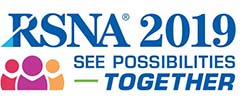

AwardsCertificate of MeritIdentified for RadioGraphics
ParticipantsJelmer M. Wolterink, PhD, Utrecht, Netherlands (Presenter) Nothing to Disclose
Anirban Mukhopadhyay, Darmstadt, Germany (Abstract Co-Author) Nothing to Disclose
Tim Leiner, MD, PhD, Utrecht, Netherlands (Abstract Co-Author) Speakers Bureau, Koninklijke Philips NV Research Grant, Bayer AG
Thomas J. Vogl, MD, PhD, Frankfurt , Germany (Abstract Co-Author) Nothing to Disclose
Andreas Bucher, MD, Frankfurt am Main , Germany (Abstract Co-Author) Travel support, Guerbet SA;
Ivana Isgum, PhD, Utrecht, Netherlands (Abstract Co-Author) Research Grant, Pie Medical Imaging BV Research Grant, 3mensio Medical Imaging BV Research Grant, Koninklijke Philips NV
The past few years have seen many applications of neural network-based deep learning to image analysis in radiology. The use of generative adversarial networks (GANs) has been a relatively recent development. GANs consist of two neural networks that are jointly optimized: one network tries to synthesize samples that resemble real data points, while a second network is trained to differentiate synthesized samples from real samples. This concept can be used to generate synthetic diagnostic images (e.g. from chest X-ray) but also for image annotation. GANs generate impressive results, but their apparent complexity makes it difficult to grasp their real value in image processing. It is important that radiologists are aware of the potential of this technique, but also of its pitfalls. In this exhibit, we will provide a basic introduction to GANs discuss applications of GANs and adversarial methods in radiology paint a realistic picture of current limitations and pitfalls of GANs
TABLE OF CONTENTS/OUTLINEThe exhibit will be adapted to an audience with a basic understanding of machine learning. Review of key deep learning concepts Basic introduction to (conditional) GANs Applications in radiology: synthesis, reconstruction, segmentation Pitfalls and caveats Outlook: prognosis, precision radiomics